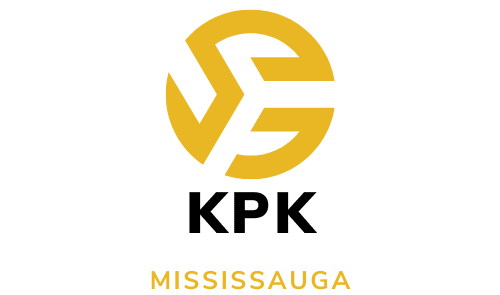When it comes to disaster management, every second counts. Timely decision-making can significantly reduce the impact of disasters on human lives and property. This makes the role of technology, particularly Artificial Intelligence (AI), extremely crucial. AI has the potential to revolutionize the way we prepare for and respond to disasters, saving countless lives and resources in the process.
The Application of AI in disaster management
Artificial Intelligence is a powerful tool that can offer unprecedented assistance in disaster management. It can predict disasters better, manage resources efficiently during emergencies, and aid in the recovery process.
A lire également : What types of images can an image generator create ?
AI’s ability to analyze vast amounts of data in real-time can greatly enhance our disaster response capabilities. It can help in predicting the occurrence, location, and severity of natural disasters such as earthquakes, hurricanes, and floods.
For instance, AI algorithms can analyze meteorological data to predict extreme weather events. These algorithms take into account several factors such as temperature, humidity, wind speed, and pressure to forecast impending disasters accurately. Similarly, AI can analyze seismic data to predict earthquakes, giving us precious time to prepare for these events.
A lire aussi : How is AI influencing content creation in media and entertainment?
During a disaster, AI can assist in managing the crisis efficiently. It can analyze the data from various sources to provide insights about the affected areas, the extent of damage, the number of people affected, and the type of help required.
Post-disaster, AI can aid in recovery and rebuilding efforts. It can help identify the areas most in need of assistance and can guide the distribution of aid and resources.
How AI enhances emergency response
Artificial Intelligence is transforming the way we respond to emergencies. It brings speed, efficiency, and accuracy to the emergency response, helping save more lives.
AI can analyze real-time data from social media, news reports, and emergency hotlines to derive valuable insights about the disaster. This information can help emergency responders prioritize their efforts and resources, ensuring that help reaches those in need in the shortest possible time.
AI can also aid emergency responders in navigating through disaster-stricken areas. AI-powered drones can survey the affected areas and generate accurate maps, helping the responders reach their destination quickly and safely.
Moreover, AI can assist in coordinating the response efforts. It can analyze the data from various sources to provide a comprehensive view of the situation. This can help the government and organizations in making informed decisions about the deployment of resources and personnel.
AI and health systems in disaster scenarios
In disaster scenarios, health systems often face enormous challenges. AI can provide valuable support in overcoming these challenges and ensuring the wellbeing of the affected population.
AI can assist in predicting the spread of diseases post-disaster. By analyzing data about weather conditions, population density, and healthcare facilities, AI can forecast the risk of outbreak of diseases. This can help health systems prepare adequately and take preventive measures in time.
Additionally, AI can aid in managing the healthcare needs of the affected population. It can analyze data from various sources to derive insights about the health conditions of the people, the type of medical help required, and the availability of resources. This can help health systems prioritize their efforts and resources, ensuring that the most critical cases receive immediate attention.
The role of governments and organizations in leveraging AI for disaster management
For AI to be effective in disaster management, governments and organizations need to invest in the right technology and tools. They also need to develop policies and frameworks that support the use of AI in disaster response.
Governments can play a crucial role in promoting the use of AI for disaster management. They can invest in AI research and development, provide funding for AI projects, and create policies that encourage the use of AI in disaster response.
Organizations, on the other hand, can leverage AI to enhance their disaster response capabilities. They can use AI to analyze data from various sources, derive valuable insights, and make informed decisions. They can also use AI to coordinate their efforts with other organizations, ensuring a more effective and efficient response.
However, the use of AI in disaster management also brings certain challenges. Issues such as data privacy, AI bias, and the reliability of AI algorithms need to be addressed. Governments and organizations need to work together to overcome these challenges and ensure that AI is used responsibly and ethically in disaster management.
Undoubtedly, AI has the power to revolutionize the way we prepare for and respond to disasters. It brings speed, efficiency, and accuracy to disaster management, helping save countless lives and resources. However, its potential can only be fully realized with the right investment, policies, and practices in place.
In conclusion, AI is a powerful tool that can greatly enhance our disaster response capabilities. It can provide valuable assistance in predicting disasters, managing resources during emergencies, and aiding in recovery efforts. However, for AI to be effective in disaster management, governments and organizations need to invest in the right technology and tools, develop supportive policies, and overcome the challenges associated with AI use.
The Impact of AI on Disaster Risk Reduction and Prevention
To enhance disaster preparedness, artificial intelligence has the potential to significantly reduce disaster risk and aid in prevention efforts. It allows for efficient resource allocation, decision making, and early warning systems which are vital in mitigating the impacts of natural disasters.
AI’s strength lies in its capacity to process and analyze large volumes of data in real-time, which is key to understanding and predicting climate change patterns. For instance, using machine learning and predictive modeling, AI can analyze satellite data and weather patterns to predict potential flood zones or areas likely to be hit by hurricanes. This allows for advanced planning and evacuation, vastly reducing the risk and damage associated with these events.
Additionally, AI’s ability to monitor and analyze social media activity can detect early signs of a disaster, informing disaster preparedness and early warning systems. For example, sudden spikes in social media posts about severe weather conditions could indicate the onset of a natural disaster, allowing for immediate response and preparation.
However, AI is not just about prediction and warning; it also plays a significant role in disaster prevention. Through AI, researchers can gain a deeper understanding of the causes and effects of natural disasters, which can contribute to more effective disaster prevention methodologies.
It’s worth noting that the use of AI in disaster risk reduction and prevention also requires careful consideration of ethical and privacy issues. For example, while analyzing social media for predictions can be beneficial, it also raises concerns about data privacy and security.
Mental Health Support through AI during Disasters
In the context of natural disasters, the focus is often on immediate physical relief and public health. However, the mental health impact on those affected is a critical, but often overlooked, aspect of disaster management. AI has the potential to address this issue, providing invaluable support to individuals experiencing mental health issues triggered by disasters.
AI can aid in the early detection and treatment of post-traumatic stress disorder (PTSD), anxiety, and depression often associated with disaster survivors. Machine learning algorithms can analyze data from online, self-reported mental health assessments to identify patterns suggesting mental health concerns. This allows for early intervention and appropriate referral to mental health professionals.
Moreover, AI-enabled chatbots can provide immediate psychological support to disaster victims. These chatbots can engage in human-like conversations, providing comfort, advice, and resources to individuals in need. They can operate 24/7, ensuring that help is available at any time.
AI’s role in addressing the mental health aspect of disaster management is indeed promising. However, it is necessary for these AI systems to be developed and deployed responsibly, ensuring they provide accurate and helpful information and respect user privacy.
Conclusion
Artificial intelligence has emerged as a game-changer in disaster management. It has the potential to predict, respond to, and prevent natural disasters more efficiently than ever before. It can enhance resource allocation, improve decision making, and establish advanced early warning systems. Furthermore, AI can provide mental health support during disasters, an aspect often overlooked in traditional disaster response strategies.
However, to fully harness the potential of AI in disaster management, significant investment and supportive policies are required. Ethical considerations, including data privacy and security, also need to be carefully addressed. With appropriate investment and regulation, AI can significantly improve disaster preparedness and response, ultimately saving lives and reducing the impact of natural disasters on human life and property.











